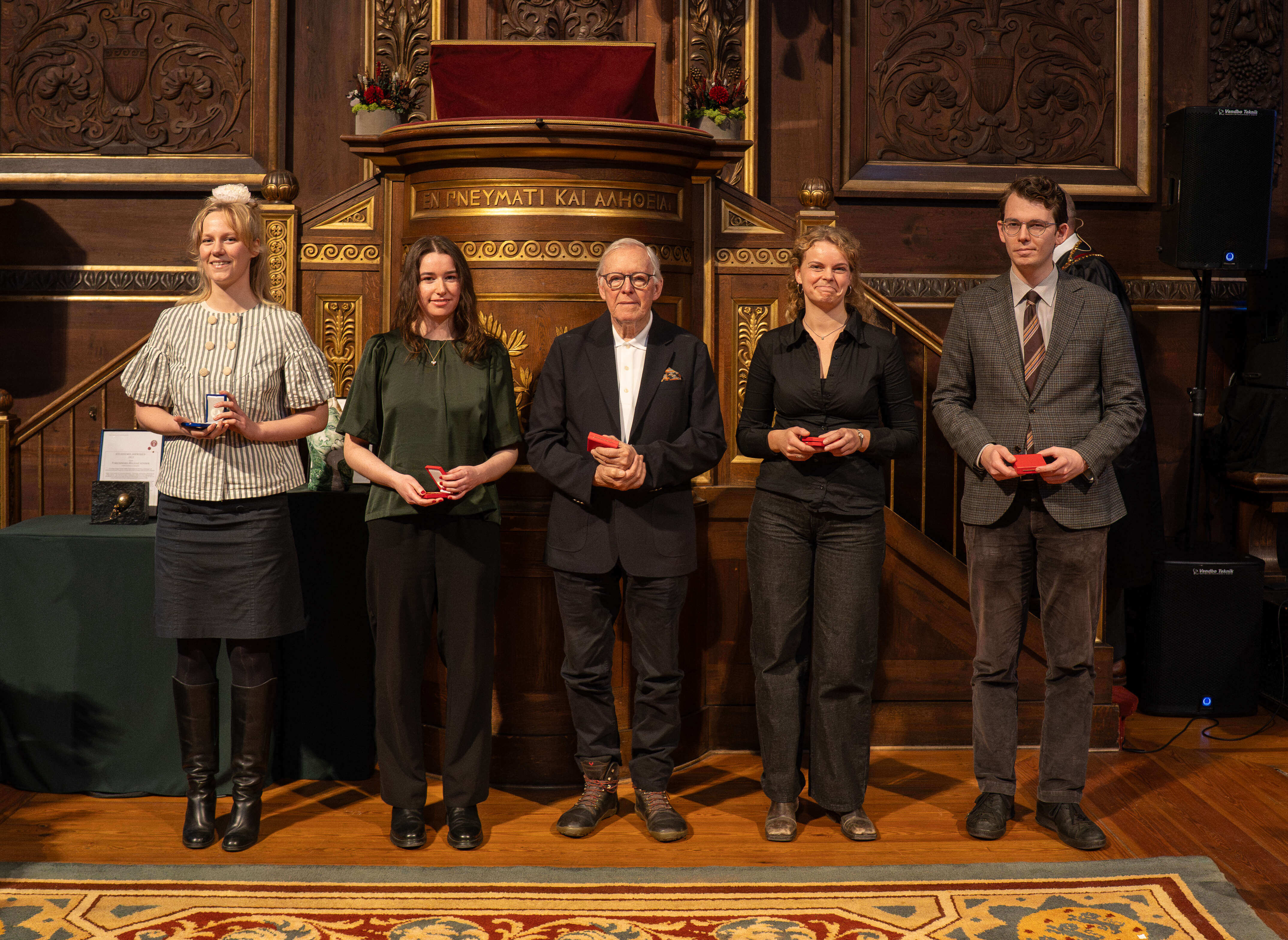Sofie Læbo Astrupgaard gets gold medal for her thesis

On Friday, at the Unversity's annual celebration, SODAS PhD student Sofie Læbo Astrupgaard was awarded a gold medal for her master’s thesis. She completed her MSc in Social Data Science in January 2024. We talk to Sofie about the research behind her thesis.
What is your award-winning thesis about, Sofie?
I wanted to know: who benefits from working from home and in what ways? I knew that Covid had probably caused a boom in job positions that had working-from-home options. My questions were: what kinds of jobs are offering these possibilities and which ones aren’t? And how do employers talk about working from home in job ads?
What kind of data was it based on and what methods did you use?
I collaborated with a consultancy firm, to get access to the text of two million Danish job ads going back eight years. I analyzed them using what we call mixed methods: a combination of quantitative and qualitative approaches.
Tell me more about the quantitative part?
I first used natural language processing methods to describe which kinds of job ads were most likely to mention working from home. To do that, I had to divide the ads up into fields—restaurant staff, management and so on—using BERTopic, a model that groups documents together into clusters based on the words that occur in them.
I also had to make a list of words related to working from home, so that a job ad mentioning one of those words could be categorized as mentioning that concept. This I did using a keyword expansion approach. That means I used a model to map all of the words from the job ads into a multidimensional space. If you think of a word like “hjemmearbejde” (“working from home”) as a floating dot, then the model would make sure that the other dots floating close to it stand for related words like “hjemmekontor” (“home office”). By looking at the all the dots close to “working from home” and adding them to the keyword list if they are relevant, I could make sure that I was catching all of the different ways people were talking about this concept in job ads.
And what did you find?
As I expected, the percentage of jobs mentioning “working from home” increased a lot after the start of Covid, and it actually kept on increasing even after all Covid restrictions were lifted in Denmark. But of course, the increase wasn’t even across fields. In white collar jobs like IT positions, the number of mentions increased a lot, whereas in blue collar jobs like warehouse or elderly care positions, it did not.
And what about the qualitative findings?
Here, what I did is to start from a numbers-based approach, and then I used discourse analysis to make sense of the results. From sentences that mentioned working from home, I found the 100 words that were most often used in those sentences. For example, “work-life” or “privacy”. I created a so-called embedded semantic network, connecting those words to one another if they were likely to occur together in the same work-from-home descriptions.
By looking at words that clustered together in that network, and using “semantic field theory”, I could tease out different framings of working from home in job ads. We call those semantic framing groups “fields”. Fields could be things like “collegial community” or “well-being and balance”. I would go back and forth between the semantic network and the actual text of the job ads to make sure I was understanding the meanings of the words in this context.
I realized that you could basically divide those six fields into two overall streams. In one stream, the ads emphasized working from home as a source of agency and autonomy for the employee. It was framed as one of the benefits of the job, contributing to the worker’s well-being and balance. In the other stream, the framing was more of a “you can work from home but…”. So here, employers were emphasizing that it was allowed to work from home but only if that was compatible with the person’s tasks, worked for their colleagues. The conditions were made clear.
Where will you go from here?
I've written a paper based on the ideas in the thesis together with Prof. Samantha Bresling. We’ve submitted the paper to a journal and are waiting for a response.
Each year, the University of Copenhagen awards medals to the best prize papers written students and new graduates. Along with the medal comes a travel grant of 10,000 kr. from the Ib Henriksen Foundation and an additional 5,000 kr. grant from the university.
